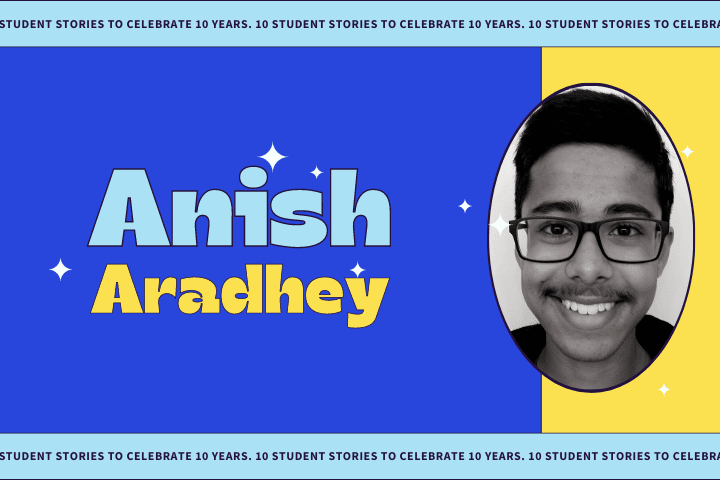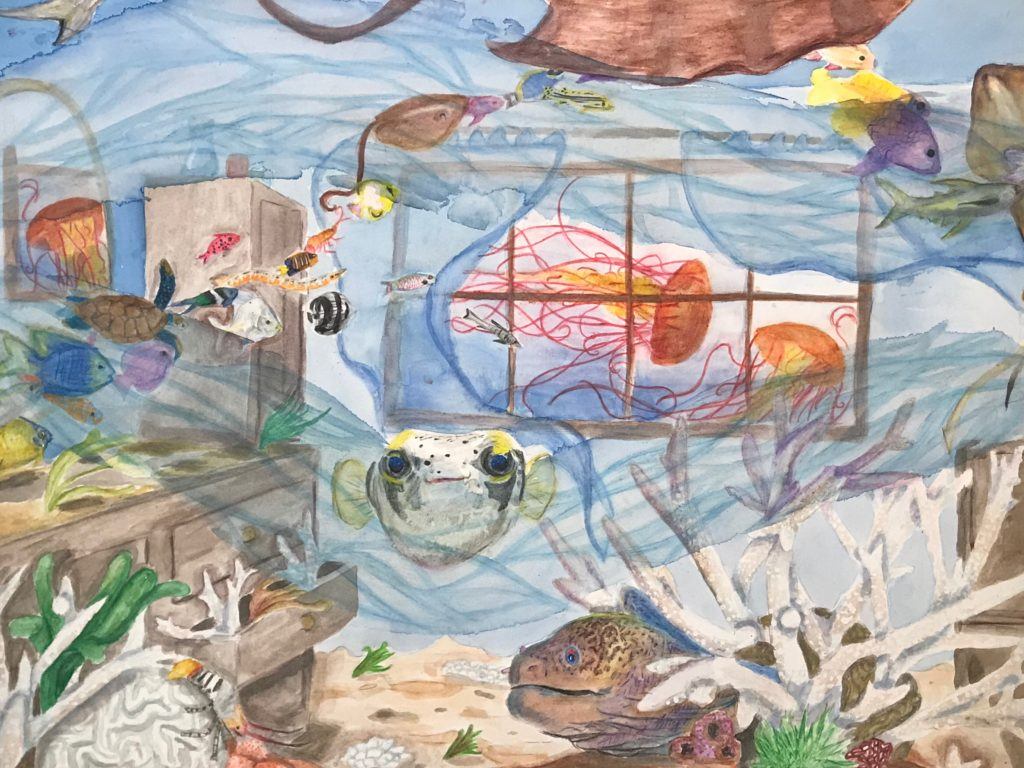
10 Student Stories to Celebrate 10 Years: Anish Aradhey
February 15, 2021In celebration of 10 years of Bow Seat’s Ocean Awareness Contest, we are showcasing some of the young artists who have helped turn this competition into a global community of creators and changemakers working on behalf of our blue planet.
Anish Aradhey is a 10th grade student from Harrisonburg, Virginia. He is involved in many organizations and extracurricular activities, including his school’s forensics team, FTC robotics team, student government, Governor’s STEM Academy, and theatre productions. Outside of school, Aradhey enjoys creating artwork, writing, and playing piano in his free time. In the future, he hope to pursue his passion for science in college and, one day, use science to help solve real-world challenges.
What have you learned from participating in the Ocean Awareness Contest?
Bow Seat’s Ocean Awareness Contest introduced me to the world of creative activism. It has been amazing to see so many young people from around the world creating for a common cause, and participating in the contest has shown me that I can make a difference in my own community, no matter my age or background. I have learned how art can evoke hope, passion, and action. All together, I have learned how my creativity can make a lasting, positive impact on the world around me.
How long have you been creating? When did you first become interested in the arts?
I have always been creating visual art and writing stories since I was a young child. However, it wasn’t until I transitioned from middle school to high school that I truly began to take my art more seriously. I started thinking more about how my paintings and poems and essays could reflect on my experiences and bring them to life for others.
My experience with writing music is much less extensive. In fact, the song for which I won a Gold Award in the Ocean Awareness Contest was the first song I had ever fully written. Seeing the success of my song inspired me to continue writing and composing music. It encouraged me to pursue an interest that I might have ignored otherwise.
How do you think your work or creative practice has developed or changed over time?
My strongest art has always been work that tells my story and connects it with others’ stories. In every piece of art I create, I try to take something that is meaningful and personal and show how it encompasses a larger experience or issue that others can relate to.
The way I approach creation depends on what I am creating. For example, my art is usually constructed from a series of sketches that grow increasingly detailed as I narrow down my ideas. Sometimes, I ask for feedback from a teacher or mentor in order to further focus my vision. On the other hand, the way I write music is less linear. I might complete my lyrics in one day but return to change one verse a week later. I usually think about a melody for days before recording anything.
Still, no matter how I reach my end result, my artwork aims to find a balance between being personal and universal.
How did participating in the Ocean Awareness Contest affect your attitude toward our ocean? Towards using art as a tool for advocacy?
I don’t live by an ocean. I don’t treasure any memories about the ocean. Still, I have done enough research to realize that the ocean is vital for all people on Earth. Many of us don’t live in coastal areas, but that doesn’t mean that we don’t receive benefits from ocean ecosystems. Participating in the Ocean Awareness Contest gave me the opportunity to extend this idea to people everywhere.
The contest showed me that activism is for everyone. It taught me that we can be activists anywhere and everywhere with just some creativity and self-determination. Ultimately, I learned that every time we create, we have a chance to change the world for the better.

What advice would you give to other young people who want to speak up and creative positive change in issues important to them?
I would encourage all young people to create positive change by speaking up about the issues that they care about. You won’t be disappointed! I think that many young people don’t realize how much they have to contribute to the conversation about ocean preservation and so many other issues. We all have our personal experiences and perspectives that shape who we are, and creating art is a great way to share those experiences while making a positive impact.
What would you like to say to today’s world leaders?
We all share a responsibility to preserve our world for the next generation. Initiatives involving conservation sometimes struggle to convey urgency or importance because their benefits are usually long-term. Still, these issues are vital to address because the young people we care about will be the next to tackle them. And we cannot afford to let them down, nor will we ever be able to.
